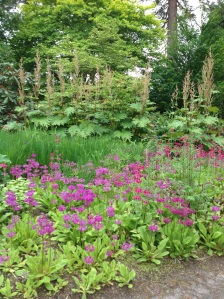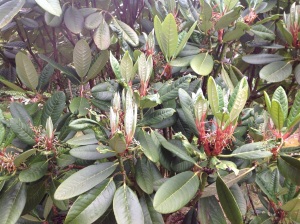By gardenpoets
Midsummer Day in Scotland must be an excuse, if any excuse is ever needed, for some of William Dunbar’s poetry. So sit back and enjoy….
The tretis of the twa mariit wemen and the wedo
Apon the midsummer evin, merriest of nichtis,
I muvit furth allane in meid as midnacht wes past,
Besyd ane gudlie grein garth, full of gay flouris
Hegeit of ane huge hicht with hawthorne treis,
Quhairon ane bird on ane bransche so birst out hir notis
That never ane blythfullar bird was on the beuche hard.
William Dunbar (1460 to 1513)
I really like the way this poem opens with an idealised description of the natural world and then quickly becomes a bawdy, rollicking tale in which three women have a frank discussion on the nature of marriage. The women speak of themselves as different kinds of birds which they envy and describe their husbands as animals; often sick and humiliated beasts of burden.
Is it a satire on the depravity of women or more burlesque than satire? On this Midsummer Day, have a read and decide for yourself.
If you don’t know this poem, don’t be put off by the language, that’s half the joy of it. For example, Blythfullar is such a wonderful word, such mouth-music, that I’d love to see it being used again.
All those in favour raise their hand. Or, on second thoughts, incorporate it in a four-line tree-themed poem and help us celebrate the 150th anniversary of the planting of the Redwood Avenue at Benmore, which I think you’ll agree, couldn’t be Blythfullar.
Source: Walking With Poets



